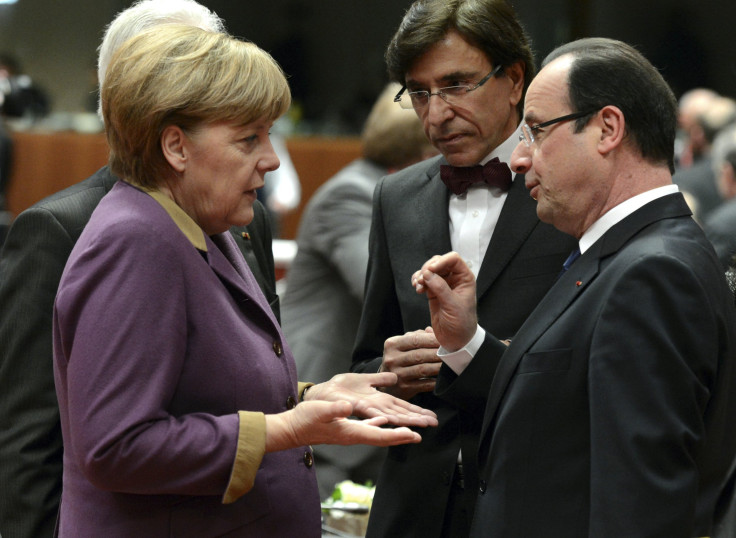A Day After Apple CEO Cook Defends Irish Tax Dodge, EU Leaders Meet To Reign In ‘€1 Trillion A Year’ Worth Of Tax Evasion

A day after Apple Inc. (Nasdaq:AAPL) CEO Tim Cook faced senators over his company’s creative use of an Irish tax loophole to pay virtually no tax on a third of its global profits, European Union leaders met in Brussels Wednesday to discuss the problem of tax avoidance and fraud among the 27 member states.
The issue has been simmering for a while but has gained considerable traction in light of Washington’s own efforts to combat corporate offshoring of profits, which aim to reduce tax burdens or in many cases avoid paying any taxes anywhere on that revenue.
As the EU struggles to come up with much-needed cash amid the euro zone sovereign debt crisis, the days of corporations abusing the region's hodge-podge of different tax jurisdictions and loopholes may be coming to an end. The European Commission estimates that as much as €1 trillion euros worth of tax fraud and evasion takes place every year in the region.
Two important summits are coming up where tax evasion will surely take center stage: the G8 meeting on June 17-18, and the G20 get-together on Sept. 5-6.
Here’s what the European Council of the EU says in a report issued Wednesday ahead of the meeting:
The European integration process has led to closer integration of the economies of all member states, with high volumes of cross-border transactions and the rolling back of cross-border transaction costs and risks. This process has generated huge benefits for European citizens and businesses but it has, in turn, created additional challenges for national tax administrations in terms of co-operation and exchange of information.
Apple offers an object lesson on how companies legally exploit tax jurisdictions. The Cupertino, Calif.-based tech giant’s main offshore subsidiary, Apple Operations International (AOI), is located in Cork, Ireland. It’s run locally by one company officer. Though it handles nearly a third of the company’s international profit, it has no physical presence.
A second Ireland-based subsidiary, Apple Sales International (ASI), buys Apple products from China and resells Apple products to Apple affiliates worldwide. Despite $38 billion in income over three years, before 2012, ASI had no employees and also claimed no tax residence. Between 2009 and 2011, ASI paid a 0.06 percent tax rate, according to the Senate’s Permanent Subcommittee on Investigations report.
It’s these and other types of legal schemes that will likely be facing considerable scrutiny moving forward in Europe’s attempt to claw back from economic straits. Ireland’s so called “Emerald Tax Haven” status might be coming to an end, but not without considerable push-back from counties in the region (including Ireland) that benefit from coddling corporations.
Countries like Austria and Luxembourg will be very protective of their bank-secrecy laws that undermine European Union efforts to track tax cheats and dodgers, and countries like Ireland and The Netherlands will likely want to preserve their tax jurisdictions that have lured major multinationals to set up their European bases there.
© Copyright IBTimes 2024. All rights reserved.




















